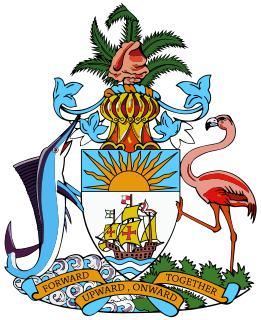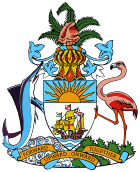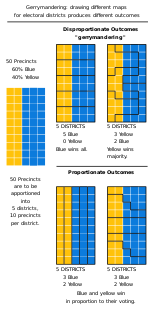The politics of Canada function within a framework of parliamentary democracy and a federal system of parliamentary government with strong democratic traditions. Canada is a constitutional monarchy, in which the monarch is head of state. In practice, the executive powers is directed by the Cabinet, a committee of ministers of the Crown responsible to the elected House of Commons of Canada and chosen and headed by the Prime Minister of Canada.

The Austrian People's Party is a Christian-democratic and conservative political party in Austria. A successor to the Christian Social Party of the late 19th and early 20th centuries, it was founded immediately following the reestablishment of the Republic of Austria in 1945 and since then has been one of the two largest Austrian political parties with the Social Democratic Party of Austria (SPÖ). In federal governance, the ÖVP has spent most of the postwar era in a grand coalition with the SPÖ. Most recently, it has been junior partner in a coalition government with the SPÖ since 2007. However, the ÖVP won the 2017 election, having the greatest number of seats and formed a coalition with the national-conservative Freedom Party of Austria (FPÖ). Its chairman Sebastian Kurz is the youngest Chancellor in Austrian history.

Democratic Left was a left-wing political party in Ireland between 1992 and 1999. It came into being after a split in the Workers' Party, and after seven years in existence it was incorporated into the Irish Labour Party in 1999. The Democratic Left served in a three-party coalition government with Fine Gael and the Labour Party from December 1994 to June 1997.

A first-past-the-post electoral system is one in which voters indicate on a ballot the candidate of their choice, and the candidate who receives the most votes wins. This is sometimes described as winner takes all. First-past-the-post voting is a plurality voting method. FPTP is a common, but not universal, feature of electoral systems with single-member electoral divisions, and is practiced in close to one third of countries. Notable examples include Canada, India, the United Kingdom, and the United States, as well as most of their current or former colonies and protectorates.

The 1950 United Kingdom general election was the first ever general election to be held after a full term of Labour government. The election was held on Thursday 23 February 1950. Despite polling over 700,000 votes more than the Conservatives, and receiving more votes than they had during the 1945 general election, Labour obtained a slim majority of just five seats—a stark contrast to 1945, when they had achieved a comfortable 146-seat majority. There was a national swing towards the Conservatives, whose performance in terms of popular vote was dramatically better than in 1945. Labour called another general election in 1951.

The Civic United Front is a liberal party in Tanzania. Although nationally based, most of the CUF's support comes from the Zanzibar islands of Unguja and Pemba. The party is a member of Liberal International.

Elections in the Bahamas take place in the framework of a parliamentary democracy. Since independence voter turnout has been generally high in national elections, with a low of 87.9% in 1987 and a high of 98.5% in 1997. The current Prime Minister is the Hon Hubert Minnis.

The Social Democratic Party is a social-democratic political party in the Faroe Islands, led by Aksel V. Johannesen.

General elections were held in the Bahamas on 2 May 2002. The opposition Progressive Liberal Party (PLP) won 29 of the 40 seats in the House of Assembly to defeat the governing Free National Movement (FNM). Voter turnout was 90.2%.

General elections were held in the Bahamas on 19 September 1972. The result was a victory for the Progressive Liberal Party, which won 57.9% of the vote and 29 of the 38 seats. Voter turnout was 88%.

General elections were held in the Bahamas on 10 January 1967. The result was a tie between the Progressive Liberal Party and the United Bahamian Party, both of which won 18 seats. In a reversal of the last election, this time the PLP won fewer votes but was able to form the country's first black-led government with the support of the sole Labour Party MP Randol Fawkes.

Early general elections were held in the Bahamas on 10 April 1968. The result was a victory for the Progressive Liberal Party, which won 29 seats. Voter turnout was 85.5%.

General elections were held in the Bahamas on 19 July 1977. The result was a victory for the Progressive Liberal Party, which won 30 of the 38 seats. Voter turnout was 92.6%.

General elections were held in the Bahamas on 10 June 1982. The result was a victory for the Progressive Liberal Party, which won 32 of the 43 seats. Voter turnout was 89.8%.

General elections were held in the Bahamas on 19 June 1987. The result was a victory for the Progressive Liberal Party, which won 31 of the 49 seats. Voter turnout was 87.9%.

General elections were held in the Bahamas on 19 August 1992. The ruling Progressive Liberal Party won only 44.7% of the popular vote and 16 seats in the House of Assembly. The opposition Free National Movement won 55% of the popular vote and 33 of the 49 seats. Voter turnout was 91.1%.
The Labour Party was a minor political party in the Bahamas. In the 1962 general elections it won a single seat, taken by Randol Fawkes. Fawkes retained his seat in the 1967 elections, in which the United Bahamian Party and the Progressive Liberal Party won 18 seats each. Although the UBP had won more votes, Fawkes supported the PLP, allowing them to form a government. Fawkes retained his seat again in the 1968 elections, but the party did not contest the 1972 elections.
The Commonwealth Labour Party was a minor political party in the Bahamas. It contested the 1972 general elections, in which it received only 254 votes and failed to win a seat.
The Bahamian Democratic Party was a political party in the Bahamas. It contested the 1977 general elections, in which it received 26.9% of the votes and won six seats, becoming the largest opposition party in Parliament. However, it did not run in the 1982 elections.









